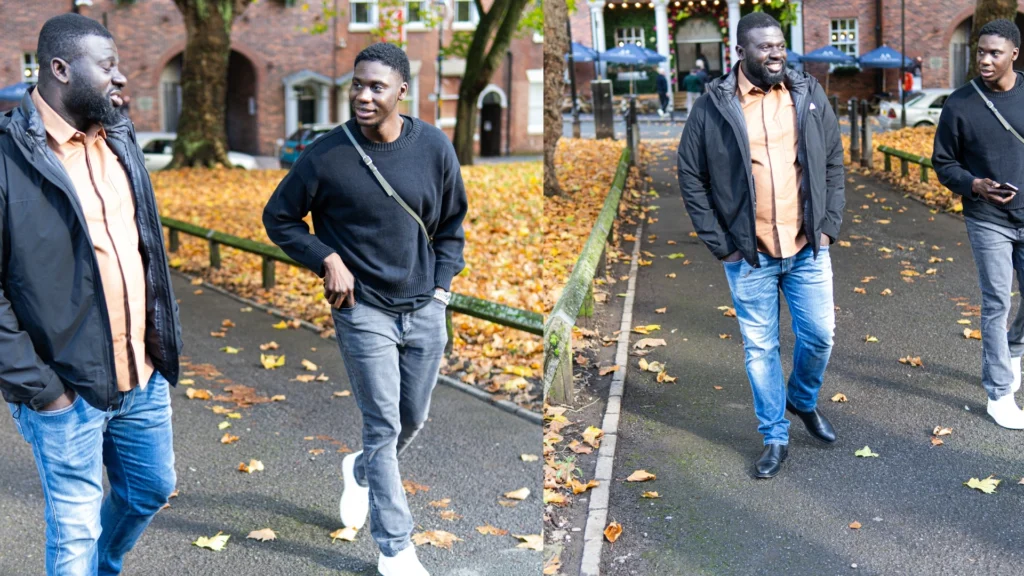One Step at a Time, taking more than 2,200 daily steps lowers the risk of early death, according to a groundbreaking study of 70,000 people. The benefits of walking go far beyond physical health—it is a powerful tool for mental wellbeing. Research shows it can substantially reduce anxiety and depression symptoms.
A quick 15-minute walk releases mood-boosting endorphins that can change your whole day. Studies show that walking increases blood flow to the brain, boosts energy levels and improves mental clarity. These positive effects become more noticeable, especially with access to outdoor spaces. Time spent in nature improves mood better than in urban environments.
This detailed piece shows you how to harness the mental health benefits of walking. You’ll learn to build environmentally responsible routines and get the most psychological value from each step. The text offers practical strategies to start a journey today, whether you need to manage daily stress or work toward long-term mental wellness.
Starting Your Mental Health Walking Journey
A walking routine doesn’t have to feel daunting. You can start with small steps and build your momentum gradually. Research shows that a 10-minute brisk walk can lift your mood and strengthen your mental focus.
Setting achievable walking goals
Your success starts with realistic targets. Start with a 10-minute walk each day. Your confidence will grow, and you can add two to three minutes until you reach a comfortable duration. A fitness tracker, smartphone app, or simple notepad can help you stay motivated and see your progress.

Creating a sustainable routine
Making walks part of your daily life needs smart planning. Here’s how you can naturally fit walking into your schedule:
- Take stairs instead of lifts
- Park farther from destinations
- Walk during lunch breaks
- Listen to podcasts or music while walking
- Add walks to your calendar like meetings
Choosing the right time to walk
Your walk’s timing can shape its mental health benefits. Morning walks energise your day’s start, while evening strolls help you unwind. Time matters less than staying consistent—walking simultaneously builds a lasting habit. Try to walk at least 30 minutes on five days each week.
Your walking environment also shapes the mental benefits. Studies show that nature walks bring more significant mood boosts than city walks. Despite that, even urban park strolls can strengthen community bonds and boost your wellbeing.
Maximising Mental Benefits One Step at a Time
Studies show that combining physical activity with mindfulness provides better psychological benefits. Walking and mindfulness are the foundations for the most mental health benefits.
Incorporating mindfulness while walking
Mindful walking turns a simple walk into a powerful mental health tool. People who focus on the present moment while walking have lower anxiety, depression, and stress levels. Being mindful during walks also helps you think better and concentrate more.
To practise mindful walking:
- Feel physical sensations – feet touching the ground, body movement
- Look at your surroundings without judgement
- Pay attention to your breathing rhythm
- Pay attention to your thoughts without getting caught up in them
Using walking for emotional processing
Stanford University researchers found that walking in nature reduces brain activity linked to negative emotions. Walking helps you process complex emotions better. People who walk regularly show better emotional health than those who don’t.

Building resilience through regular walks
Walking is vital for protecting against stress-related health issues. Regular exercise improves brain plasticity, making your brain more resilient to cognitive problems. Regular walks throughout your life build stronger mental resilience.
Nature walks improve moods better than city walks. People who walked in natural settings experienced much less psychological stress and thought more clearly. Regular walks continue to help emotional wellbeing even in areas with environmental challenges.
Social Walking for Mental Well-beingWalking with others creates a perfect setting for mental wellness. Studies show that nature-based walking groups help improve mood, optimism, and overall mental wellbeing.
Benefits of walking with others
Group walks create a therapeutic environment where conversations flow naturally. Research shows that walking side-by-side makes people more comfortable sharing personal challenges. Group walks also help people feel more connected to their mental health concerns. Studies confirm that walking groups boost mental health through social bonds and shared experiences.
Finding walking groups
The Men’s Prosperity Club Walk & Talk events provide a supportive space for young men to connect, share experiences, and improve their mental wellbeing through walking. These events offer:
- Peer-to-peer support, fostering open and honest conversations
- A welcoming environment for all fitness levels
- Easily accessible locations
- Opportunities for personal growth and meaningful connections
In addition to these walks, the Men’s Prosperity Club hosts talking groups for men navigating life’s challenges—whether recovering from a difficult period, facing current struggles, anticipating future obstacles, or simply seeking good company. The aim is to foster community, encourage personal growth, and provide mutual support.
These events are free, with no registration or fees required—participants are welcome to attend at their convenience.

Building connections through movement
Regular group walks naturally create social bonds. Research shows that walking makes a relaxed environment where genuine interactions thrive. Combining physical activity and social engagement reduces loneliness and strengthens community bonds.
Group walking promotes supportive relationships that keep people coming back. These social connections become especially valuable during tough times and provide emotional support and community resources. Shared experiences and regular meetups in walking groups build lasting friendships that boost mental well-being.
Overcoming Mental Blocks to Walking
Mental blocks can substantially hold you back from sticking to a walking routine. Research shows that 91% of people want to “improve health” as their primary goal for exercise but struggle to stay consistent.
Dealing with motivation challenges
Practising self-kindness is more effective than harsh self-criticism when staying motivated. Rather than feeling guilty about missed walks, understanding yourself and your habits leads to better long-term results. Research shows that self-compassion helps individuals recover from setbacks and reduces stress.
Starting the day by reflecting on your walking goals can enhance motivation. Staying connected to your deeper reasons for walking—whether to relieve stress or boost your mood—keeps you focused and committed. Many people find that walking naturally lifts their spirits and improves overall well-being.
Weather-proofing your walking habit
You can stick to your walking routine in challenging weather with proper preparation. Here’s the gear you need:
- A waterproof jacket with a hood
- Quality, water-resistant footwear
- Appropriate layered clothing
- Weather-appropriate accessories
Indoor alternatives work well when you can’t walk outside. Shopping centres, museums, and indoor tracks provide safe, temperature-controlled spaces to keep up your walking habit.
Creating accountability systems
A reliable accountability system will help you walk more consistently. Research shows that professional support helps people overcome mental barriers and stick to regular physical activity. You can create a supportive network by sharing your walking goals with family or colleagues.
Fitness devices or apps let you see your progress. Technology helps track your progress, but combining digital tracking with human support works best. Studies confirm that people with good social support exercise more consistently at moderate-to-vigorous levels.
One Step Closer to Mental Wellness
Walking is a powerful way to boost mental well-being, offering benefits far beyond physical health. Regular walks have been shown to reduce anxiety, depression, and stress while also enhancing cognitive function and emotional resilience.
Building a walking routine starts with small, steady steps rather than drastic changes. Setting realistic goals, choosing the right walking environment, and staying accountable make it easier to develop lasting habits. Challenges such as bad weather or low motivation are inevitable, but with the right mindset and self-compassion, they become easier to overcome.
Walking can also be more rewarding when shared with others. Engaging in conversation while walking fosters deeper connections and provides a sense of support. The Men’s Prosperity Club Walk & Talk events offer an opportunity to combine movement with meaningful discussions, helping participants stay motivated while benefiting from a strong, like-minded community.
Better mental health begins with just one step. Each walk brings fresh perspectives, greater mental clarity and improved emotional balance. The steps taken today create lasting positive changes—sometimes, the simplest actions lead to the most meaningful results.




